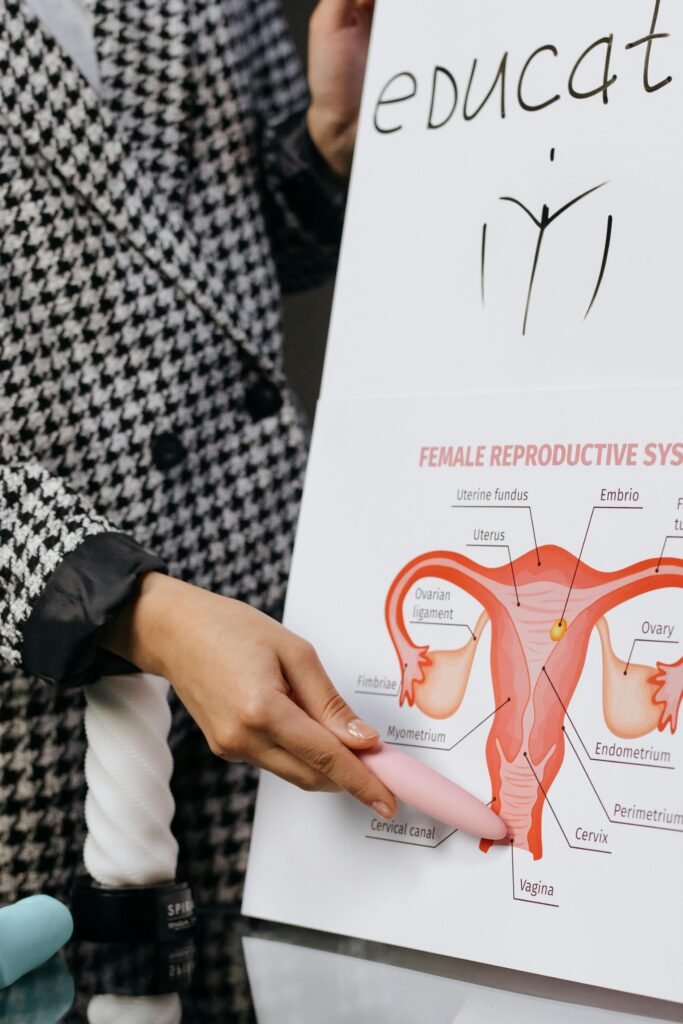Follow us and share.
Gynecological Health and Family Planning: A Complete Guide
Learn about birth control methods, how to prepare physically and emotionally for pregnancy, and the importance of regular prenatal checkups for a healthy pregnancy.

What is Gynecological Health and Family Planning?
Gynecological health is essential to a woman's quality of life and plays a crucial role in family planning. Understanding the different options available to prevent unwanted pregnancies, as well as properly preparing for a healthy pregnancy, is essential for women's well-being.
In this article, we explore different methods of contraception, tips for preparing physically and emotionally for pregnancy, and the vital importance of prenatal care.
Contraceptive Methods: Know Your Options
There are various contraceptive methods tailored to each woman's individual needs. Choosing the right method depends on factors such as age, health, personal preferences, and future pregnancy planning.
📌 Hormonal contraceptive methods:
- Birth control pills: Effective in regulating the menstrual cycle and preventing pregnancy.
- Contraceptive patch: It is applied weekly to the skin and continuously releases hormones.
- Vaginal ring: It releases hormones into the vagina and changes monthly.
- Subdermal implant and injections: They provide long-lasting protection against pregnancy.
📌 Barrier methods:
- Male and female condoms: They protect against pregnancy and sexually transmitted diseases (STDs).
- Diaphragm: Device placed in the vagina before sexual intercourse, combined with spermicide.
📌 Permanent methods:
- Tubal ligation: Surgery that blocks or cuts the fallopian tubes.
- Vasectomy: Male surgical procedure that prevents the passage of sperm.
Planned Parenthood – Information on contraceptive methods.
Pregnancy Planning: Physical and Emotional Preparation
Properly preparing for pregnancy involves adopting healthy habits and undergoing pre-pregnancy checkups. This ensures better outcomes for both mother and baby.
📌 Physical preparation:
- Conduct preconception medical examinations to assess general health and detect potential risks.
- Take folic acid supplements to prevent birth defects.
- Maintain a healthy weight with a balanced diet and moderate physical activity.
- Avoid harmful habits such as smoking, alcohol, or drug use.
📌 Emotional preparation:
- Talk openly with your partner about expectations, fears, and emotions related to motherhood.
- Seek psychological counseling if you experience anxiety or uncertainty about the pregnancy.
- Establish an emotional support network with family, friends, or support groups.
Centers for Disease Control and Prevention (CDC) – Preparing for a healthy pregnancy.
Importance of Prenatal Care
Regular prenatal checkups are key to ensuring a healthy pregnancy and detecting potential complications early, providing safety for both mother and baby.
📌 Benefits of prenatal care:
- Early detection and management of complications such as preeclampsia, gestational diabetes, or hypertension.
- Constant monitoring of fetal development and maternal health.
- Nutritional counseling and recommendations on healthy habits.
📌 Recommended prenatal check-up schedule:
- First trimester: First visit to confirm pregnancy, monthly follow-up.
- Second trimester: Monthly follow-up, detailed ultrasounds.
- Third trimester: More frequent visits, every 2 weeks until week 36, then weekly until delivery.
📌 Warning signs to consult a doctor immediately:
- Vaginal bleeding or loss of amniotic fluid.
- Severe or persistent abdominal pain.
- High fever or symptoms of infection.
World Health Organization (WHO) – Guides on prenatal care.
Conclusion
Comprehensive gynecological health involves proper family planning, conscious pregnancy preparation, and regular prenatal care. Making informed decisions about contraceptive methods, preparing physically and emotionally for pregnancy, and maintaining regular prenatal visits ensures a healthy path to motherhood and prevents complications that can affect both mother and baby.
🌟 Advice: Consult your gynecologist regularly for personalized guidance on contraception, pregnancy planning, and prenatal care. Your reproductive health deserves constant attention and care.


